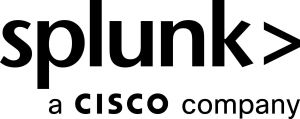Featured: SOAR
Developing SOAR use cases using workbooks and playbooks
Splunk SOAR use cases and playbooks are not interchangeable terms. Use cases can be thought of as response plans, end-to-end processes, or standard operating procedures. Playbooks represent one step in an end-to-end process. Learn how they work together in this article.
Featured: Data
Setting up Azure Event Hubs in Data Manager
The Azure Event Hubs connector for Splunk Data Manager simplifies data onboarding by enabling seamless ingestion of event streams into Splunk Cloud Platform. By integrating with Splunk Data Manager, organizations can efficiently capture continuous data flows, like logs or sensor information, and enhance their analytics capabilities.
Featured: Splunk Platform
Detecting financial fraud using the Splunk App for Behavioral Profiling
Detecting anomalous behavior in financial transactions is not just a security feature; it is a business necessity. The Splunk App for Behavioral Profiling tackles this challenge by offering an advanced yet practical approach to monitoring and analyzing user behavior across financial systems.
Resources for Splunk Program Managers
The Splunk Success Framework
Accelerate and increase the value you derive from your data with Splunk software using the Splunk Success Framework (SSF), a flexible collection of best practices for setting up Splunk Enterprise or Splunk Cloud Platform as a program.
Data Ingestion and Application
Data Descriptors
Bring data to every question, decision, and action across your organization with comprehensive guidance for getting data in and applying data to your key use cases.
Get the latest
New Articles
- Platform
- Turn data into doing to unlock innovation, enhance security and drive resilience.
- Security
- Protect your business and modernize your security operations with a best-in-class data platform.
- Observability
- Solve problems in seconds with the only full-stack, analytics-powered, and OpenTelemetry-native observability solution.
- Splunk Success Framework
- The Splunk Success Framework (SSF) is a flexible collection of best practices for setting up your Splunk software implementation as a program.
- Data Descriptors
- The data sources in use at your organization can all be linked to common use cases. Get recommendations from Splunk experts and then start getting answers from your data.
- Antivirus and antimalware data
- Application data
- Application server data
- Authentication data
- Backup data
- Vendor-specific data
- Endpoint detection and response (EDR) data
- Intrusion detection and prevention data (IDS and IPS)
- Load balancer data
- Email data
- Network communication data
- Patch management data
- Physical security data
- Web proxy data
- Change events data
- Configuration management data
- IP address assignment data
- Vulnerability detection data
- Web server data
- DNS data
- Linux and Unix
- Okta
- SAP
- Zscaler
- Zoom
- Zeek
- Websense
- VMware
- CrowdStrike
- Carbon Black
- Kubernetes
- Check Point
- Fortinet
- Salesforce
- Symantec
- Palo Alto Networks
- Trend Micro
- Tenable
- GitHub
- Atlassian
- AppDynamics
- Dell
- Syslog
- Apache
- Amazon
- Cisco
- Microsoft
- JupiterOne
- GitLab
- Mac OS
- Docker
- Firewall data
- MOVEit
- Skyhigh Security
- CyberArk
- OpenAI
- Adobe
- NETSCOUT
- Nagios


